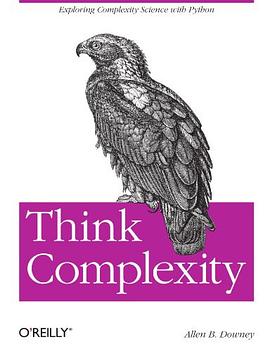Think Complexity
内容简介
Dive into Python's advanced possibilities, including algorithm analysis, graphs, scale-free networks, and cellular automata with this in-depth, hands-on guide. Whether you're an intermediate-level Python programmer, or a student of computational modeling, you'll examine data structures, complexity science, and other fascinating topics through a series of exercises, easy-to-understand explanations, and case studies. Think Complexity presents features that make Python such a simple and powerful language. Author Allen Downey provides code to help you get started, along with a solution for each exercise. With this book, you will: Work with graphs and graph algorithms, NumPy arrays and SciPy methods, basic signal processing and Fast Fourier Transform, and hash tables. Discover complexity science, the field that studies abstract models of complex physical systems, including power laws, fractals and pink noise, and Turing machines. Explore the philosophy of science through the models and results in this book about the nature of scientific laws, theory choice, and realism and instrumentalism, and more.
......(更多)
作者简介
Allen B. Downey拥有加州大学伯克利分校的计算机科学博土学位和MIT的硕士与学土学位,现任美国欧林工程学院计算机科学系的教授,曾经在威尔斯利大学、科尔比学院和加州大学伯克利分校教授计算机科学相关的课程。曾经担任 Google的访问科学家,对复杂性科学和Python十分着迷,有较为深入的研究和丰富的实践经验。
......(更多)
目录
......(更多)
读书文摘
Thomas Kuhn introduced the term “paradigm shift” in The Structure of Scientific Revolutions in 1962.
......(更多)






